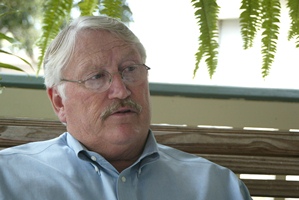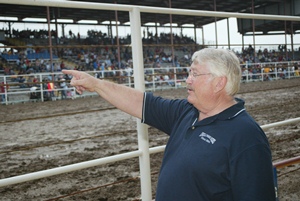 Burl Cain, a member of Prison Fellowship’s board of directors and the long-serving warden of Angola Prison, was recently interviewed by the Acton Institute for an article appearing on its website. Since Cain took over Angola in 1995, it’s gone from being “the bloodiest prison in America” to one of the most revolutionary. What was the key? According to Cain, inmate prayer is at the heart of Angola’s transformation.
Burl Cain, a member of Prison Fellowship’s board of directors and the long-serving warden of Angola Prison, was recently interviewed by the Acton Institute for an article appearing on its website. Since Cain took over Angola in 1995, it’s gone from being “the bloodiest prison in America” to one of the most revolutionary. What was the key? According to Cain, inmate prayer is at the heart of Angola’s transformation.
“I think Angola proved a lot of things that even Scripture says that does not need proving, like II Chronicles 7:14, “If my people who are called by my name would turn their face to Me, I will heal their land.” And that’s what happened here, because this prison’s culture has changed, not because I’m a smart warden or because of the authority here. It changed solely because these inmates were praying to God to heal their land, and He did,” Cain told the Acton Institute.
And how does that change get exported to the culture? When prisoners who have been transformed by Christ are released back into society, says Cain.
“How are we going to change a culture? How are we going to fix a community? How we going to do it? We’re preparing the people in this prison to go back to that community and change it. The problem is, the politicians have got to figure out and realize that and let’s let them out of jail when they’re rehabilitated. Just don’t punish them for the sake of punishing them and to get justice because we’re mad at them. Let’s let them get rehabilitated, correct the deviant behavior and then let’s get them back out into the community to change a community and prevent more victims of violent crime.”
Cain’s approach stands opposed to the lock-em-up mentality that dominated corrections for decades, but says Cain, change is already in other places besides Angola. He credits his long-time friend Chuck Colson, founder of Prison Fellowship and Justice Fellowship, with helping to usher in this era.
“I am on the Prison Fellowship board,” said Cain. “I was just inducted on the board in May of 2012. That tells you what I think of Prison Fellowship, because Prison Fellowship is going to play a tremendous role in us establishing the seminaries [like the one in Angola] in other states. Because they have the political clout to open the doors to get the seminary in different prison systems. You have to start with legislators and governors to compel the Department of Corrections to do the seminary because, again, most prison people are hooked up into traditional ways because they think it works. So Colson’s reach and influence is certainly deep and he is the reason so much of this is possible.”
